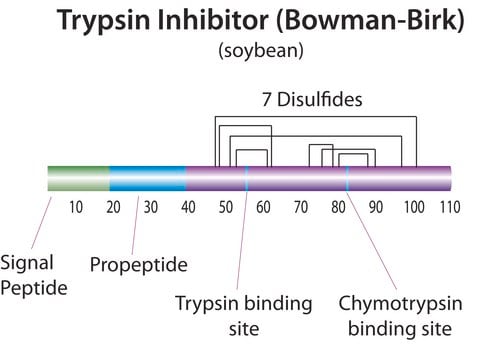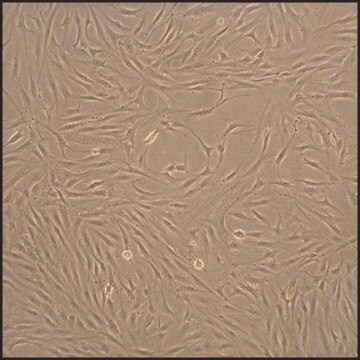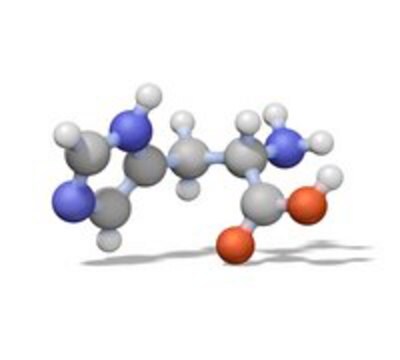T6414
Trypsin inhibitor from Glycine max (soybean)
solution, sterile-filtered, suitable for, suitable for cell culture
Synonym(s):
SBTI
About This Item
Recommended Products
biological source
Glycine max (soybean)
Quality Level
sterility
sterile-filtered
product line
BioReagent
form
solution
mol wt
20,100 Da
concentration
10 mg/mL
technique(s)
cell culture | mammalian: suitable
solubility
balanced salt solution: 1 mg/mL
concentrate: >10 mg/mL, hazy, amber-yellow
phosphate buffer: 10 mg/mL
water: 10 mg/mL
serum-free medium: soluble
suitability
suitable for
UniProt accession no.
shipped in
dry ice
storage temp.
−20°C
Gene Information
Glycine max (soybean) ... KTI3(547831)
Looking for similar products? Visit Product Comparison Guide
Application
Trypsin inhibitor from Glycine max (soybean) was used for the following applications:
- Filteration and seeding of dispersed acini
- Relative quantification of phospho-tau and immunoblotting analysis
- Subcloning and transformation of VIL-4 and IL-4 cDNA, and protein expression and purification (trypsin inhibitor form glycine max is used as positive control).
Biochem/physiol Actions
Other Notes
Unit Definition
Preparation Note
Solutions can retain activity when stored short-term at 2-8° C. Solutions are stable in frozen aliquots at -20°C.
Not finding the right product?
Try our Product Selector Tool.
Signal Word
Danger
Hazard Statements
Precautionary Statements
Hazard Classifications
Resp. Sens. 1 - Skin Sens. 1
Storage Class Code
12 - Non Combustible Liquids
WGK
WGK 2
Flash Point(F)
Not applicable
Flash Point(C)
Not applicable
Personal Protective Equipment
Choose from one of the most recent versions:
Certificates of Analysis (COA)
Don't see the Right Version?
If you require a particular version, you can look up a specific certificate by the Lot or Batch number.
Already Own This Product?
Find documentation for the products that you have recently purchased in the Document Library.
Customers Also Viewed
Protocols
StableCell™ Trypsin solutions are designed to perform cell detachment as standard trypsin solutions do, without the need to aliquot, freeze, and thaw. This saves significant time before passaging.
Store the cryovials in a liquid nitrogen storage tank immediately upon arrival.
Store the cryovials in a liquid nitrogen storage tank immediately upon arrival.
Technical information for working with human bronchial epithelial cell line including thawing, subculturing and cryopreservation.
Chromatograms
application for HPLCOur team of scientists has experience in all areas of research including Life Science, Material Science, Chemical Synthesis, Chromatography, Analytical and many others.
Contact Technical Service









